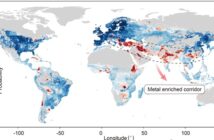At this critical stage in the registration renewal process, the CIPC Task Force is calling for the potato industry to pull together to help keep Chlorpropham on the market for seasons to come.
Speaking on behalf of the CIPC Task Force at the British Potatoes Event in Harrogate this week, Tjaart Hofman, portfolio development manager at Certis Europe urged industry stakeholders to share their experiences with the active substance, and to reiterate its importance to the sector.
“CIPC re-registration will be concluded early next year. This Task Force is working closely together to collect all available data and answer any potential questions regulators may have to ensure CIPC continues to bring major benefits to the potato industry in the future.
“The potato processing industry has evolved significantly over the last 30 years, with the European potato sector now worth approximately €19.4bn. Of that figure, 50% is represented by the processing sector specifically.
“Europe remains the second largest producer of potatoes worldwide and is the biggest exporter of frozen potato produce globally. The volume of frozen potato produce exported outside the EU has increased from 0.685 million tons of potatoes to 1.300 million tons of potatoes in the last 10 years.
“This guaranteed year-round supply of potato produce is only made possible through access to crop protection products that help maintain crop quality in long-term storage, and most importantly CIPC.”
Dr Mike Storey, chair of the CIPC stewardship group added that growers also have a role to play. “This is a critical time for the UK potato sector, and at farm-level we also need to work together to ensure there are no exceedances of the current CIPC MRL levels, and that Be CIPC Compliant stewardship guidelines are followed and maintained.
“Without CIPC, there will inevitably be an impact on production and storage capabilities, so it’s important that the industry acts now to raise awareness of the lack of valid alternatives, to secure the future of this active.”




